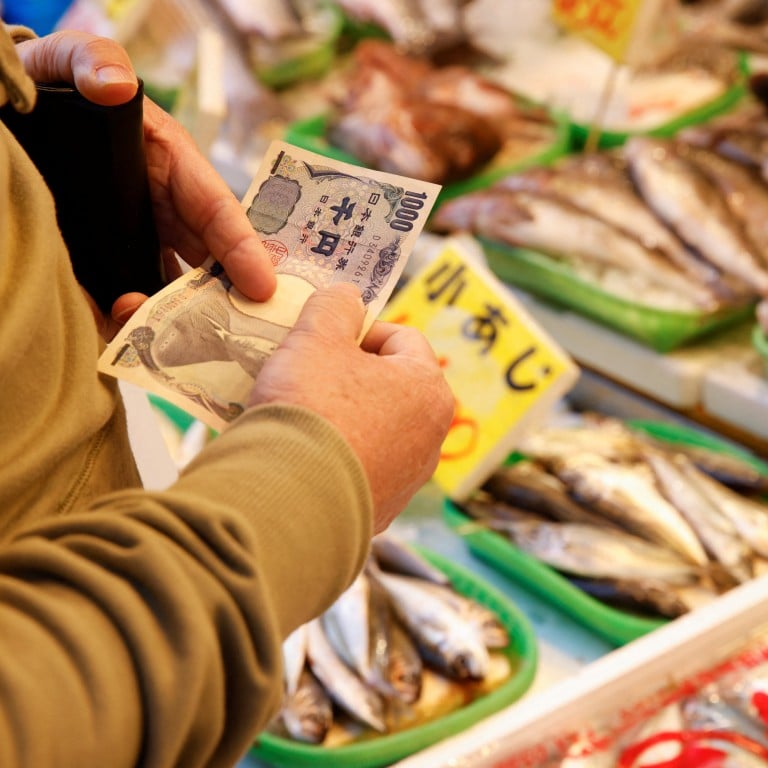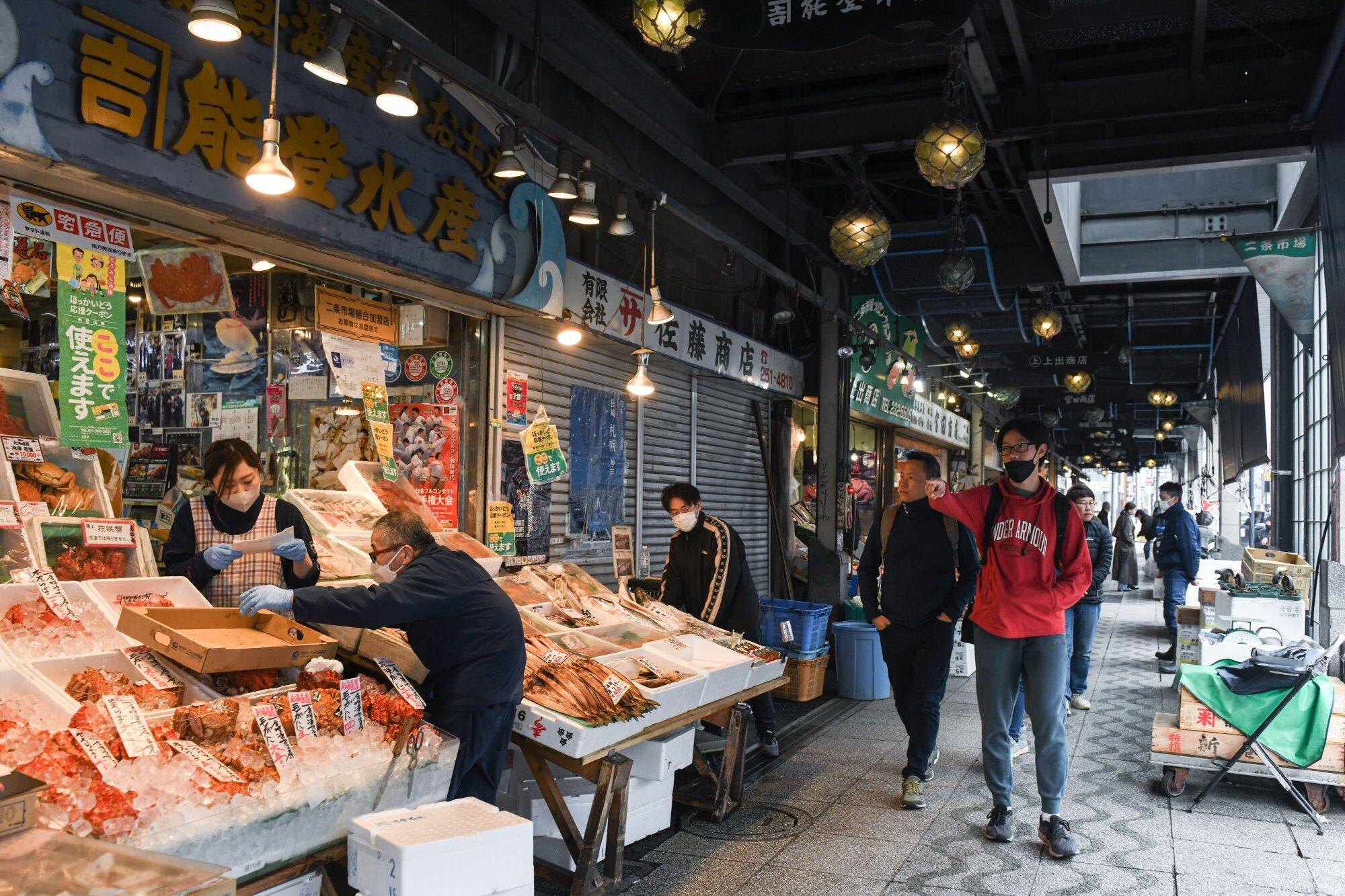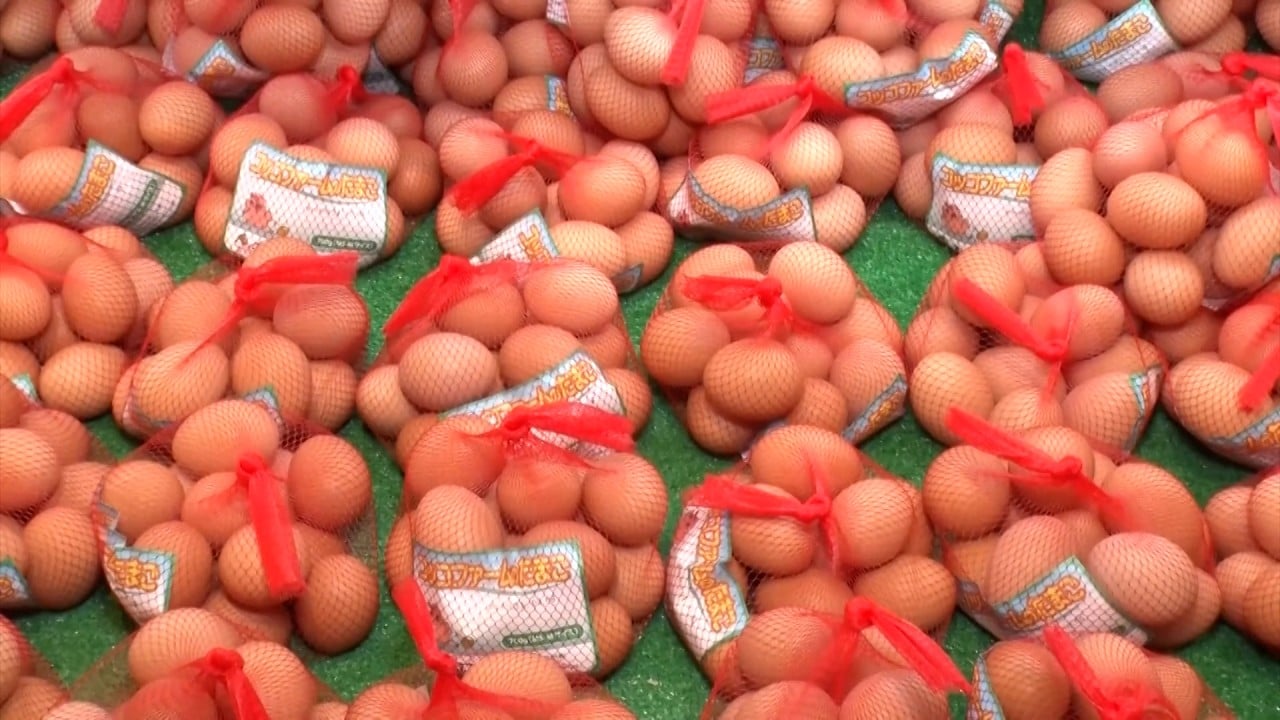
Japan called out by G7 ally Canada over imports of Russian seafood, energy amid Ukraine war
- Japanese importers’ preference for cheap Russian seafood hasn’t gone unnoticed in Canada, which says it has raised the issue with Tokyo
- Imports of Russian timber and energy also continue to flow in, as Japanese consumers struggle with the highest inflation in three decades
Statistics from Japan’s Finance Ministry show imports of Russian marine products rose to 155.2 billion yen (US$1.15 billion) last year, eclipsing the previous record of 140.2 billion yen in 2018. According to a Kyodo News report, poor catches in domestic waters contributed to the high demand in Japan – at the same time as Russian fishermen enjoyed larger catches off the country’s eastern coast.

Snow crabs accounted for the largest single product brought into Japan. That may partly be due to strong demand, but is also a result of Russian exporters expanding into new markets after being banned from the US and other Western markets.
Japanese importers’ preference for cheap Russian seafood has not gone unnoticed in Canada, with ministers and provincial government leaders raising the issue with Tokyo, The Canadian Press news agency reported.
Clifford Small, a politician with the Conservative Party of Canada representing a maritime constituency in Newfoundland and Labrador, has called on the government to pressure Japan to ban imports of Russian crab to demonstrate solidarity among G7 member states.
In response to the growing pressure, Canadian Trade Minister Mary Ng confirmed that the issue had been raised with Japan, with her office issuing a statement: “We are thankful for Japan’s continued efforts to work with allies to isolate Russia, and have asked Japan to consider Canada’s sustainable, ethical and premium snow crab to replace its current supply of Russian products.”
Wagyu producers seek to beef up exports as Japanese eat less red meat
This Week in Asia asked the Japanese Foreign Ministry for comment on why Japan continues to import Russian seafood, energy and timber when alternative sources remain available – and whether the government believes failing to adhere to strict sanctions is undermining global unity against Moscow’s invasion of Ukraine. The ministry did not immediately respond.
Two major seafood importers were also contacted for comment about their policies regarding Russian maritime products, but the Sapporo-based Orion Group and Toyota Tsusho Foods Corp, headquartered in Tokyo, declined to provide any information.
Eyebrows had previously been raised over Japan’s refusal to halt imports of LNG from Russia’s Sakhalin-2 export facility, while a London-based environmental group has condemned Tokyo’s failure to halt imports of more than US$410 million worth of “blood timber” from Russia since the invasion of Ukraine.
Japanese consumers are dealing with the worst inflation … in 30 years and that means price is driving the competition for Russian imports
In April last year, Japan banned imports of logs, wood chips and veneer from Russia, although that was purely symbolic as Moscow had previously outlawed exports of those same products to Japan on the grounds that it was an “unfriendly country”, the NGO Earthsight pointed out.
Significantly, however, neither Moscow nor Tokyo acted to halt the sale of sawn timber, which accounted for 90 per cent of the wood trade before the war.
An investigation into the trade has revealed that most of the wood is consumed by Japan’s construction industry, with the Tokyo-based Iida Group purchasing a majority stake in the RFP Group. The Russian government owns a sizeable portion of the RFP Group.
In a statement, a spokesman for the Iida Group said: “We are looking at the situation from a variety of points of view and will make rapid decisions so as not to undermine the value of shares held by existing shareholders.
“To that end, we will try to collect the right information and analyse it as the business situation in Russia is changing every day.”
Itochu Kenzai Corp also imports timber from Russia, while TM Baikal is based in Irkutsk but is owned entirely by Japanese companies, including the giant Mitsui & Co conglomerate.
Stephen Nagy, a professor of international relations at Tokyo’s International Christian University, said the Japanese government’s failure to block more imports from Russia appeared “bad, but is probably not as bad as it looks”.
“When it comes to seafood imports, I think it’s purely a matter of price,” he said. “Japanese consumers are dealing with the worst inflation that the country has seen in 30 years and that means price is driving the competition for Russian imports.”
Is Putin using oil to ‘blackmail’ Japan for slapping sanctions on Russia?
Not only would that give China access to another route for energy imports, he points out, but it would also present Chinese firms with the cutting-edge technology that Japanese firms have installed at the facility.
“There is a very limited amount of trade between eastern Russia and Japan and I don’t think it’s divisive enough to cause a problem with Japan’s partners,” Nagy said. “This is not such a significant amount that it would help to prop up Putin’s war with Ukraine.”


